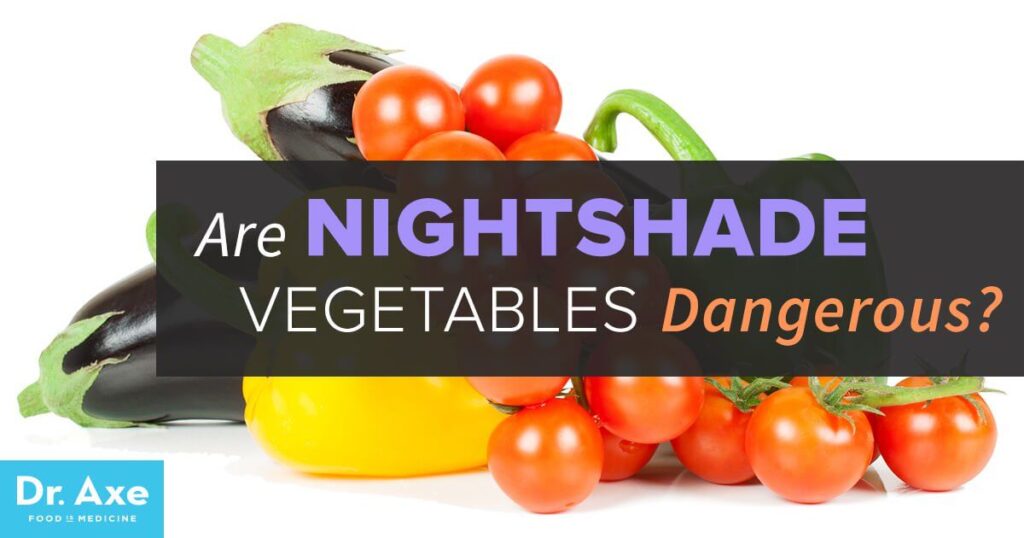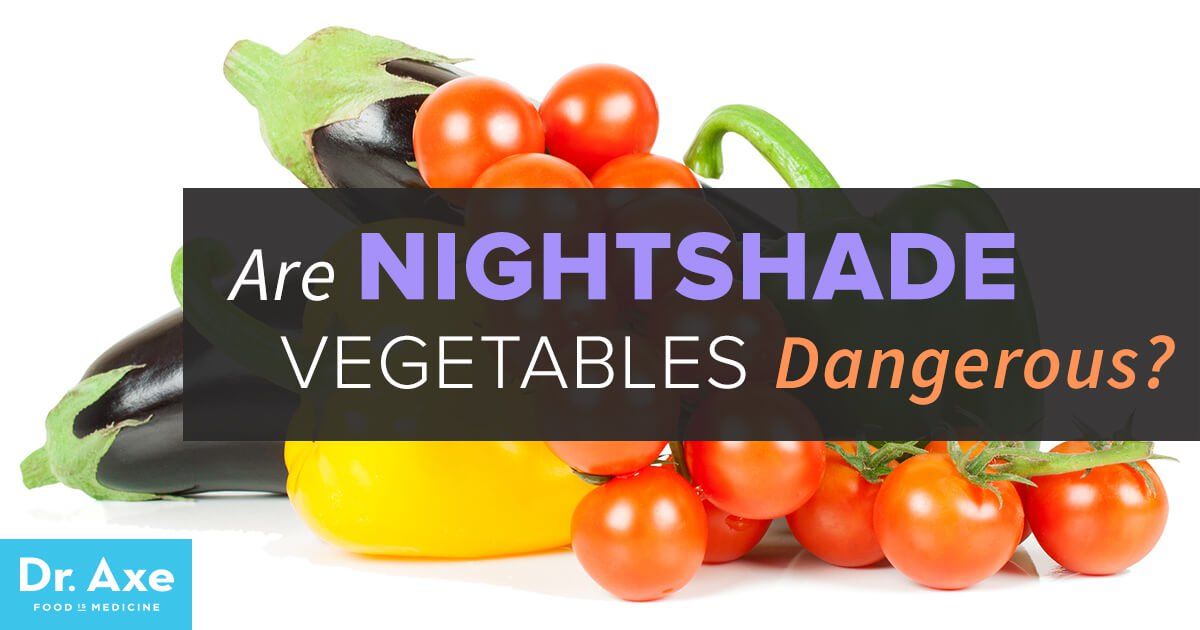
Nightshade Vegetables and Inflammation: Separating Fact from Fiction
Nightshade vegetables, a common staple in many diets, have become a topic of contention, particularly concerning their potential link to inflammation. This article aims to delve into the science behind these claims, offering a balanced perspective on whether nightshade vegetables truly contribute to inflammation. We will explore what nightshade vegetables are, the compounds they contain, and the current research available to help you make informed decisions about your diet.
What are Nightshade Vegetables?
Nightshade vegetables belong to the Solanaceae family, a diverse group of plants encompassing thousands of species. However, only a small fraction of these are consumed as food. The most common edible nightshade vegetables include:
- Tomatoes
- Potatoes (excluding sweet potatoes)
- Eggplants
- Peppers (bell peppers, chili peppers, paprika, cayenne)
- Goji berries
- Tomatillos
These vegetables are widely used in cuisines around the world, providing essential vitamins, minerals, and antioxidants. But why the controversy surrounding them?
The Controversy: Alkaloids and Inflammation
The primary concern regarding nightshade vegetables and inflammation stems from the presence of alkaloids. Alkaloids are naturally occurring chemical compounds found in various plants, including nightshade vegetables. Some alkaloids, like solanine in potatoes and tomatoes, and capsaicin in chili peppers, are believed to potentially trigger inflammation in susceptible individuals. The theory suggests that these alkaloids can irritate the gut lining, leading to increased intestinal permeability (leaky gut) and subsequent systemic inflammation. [See also: Gut Health and Anti-Inflammatory Diets]
Examining the Evidence: What Does the Science Say?
While the theory sounds plausible, the scientific evidence supporting a direct link between nightshade vegetables and inflammation in the general population is limited and often anecdotal. Much of the concern originates from individuals with pre-existing conditions, such as autoimmune diseases or sensitivities to specific foods.
Limited Research on the General Population
Studies investigating the effects of nightshade vegetables on inflammation in healthy individuals have generally not found a significant correlation. In fact, some research suggests that these vegetables may actually have anti-inflammatory properties due to their high antioxidant content. For example, tomatoes are rich in lycopene, a potent antioxidant known for its anti-inflammatory effects. Similarly, peppers contain vitamin C and various carotenoids, which also contribute to reducing oxidative stress and inflammation.
Potential Issues for Specific Individuals
It’s crucial to acknowledge that some individuals may experience adverse reactions to nightshade vegetables. These reactions could be due to:
- Alkaloid Sensitivity: Some people may be more sensitive to alkaloids than others, leading to digestive discomfort or other symptoms.
- Underlying Conditions: Individuals with autoimmune diseases like rheumatoid arthritis or inflammatory bowel disease (IBD) may find that certain foods, including nightshade vegetables, exacerbate their symptoms. However, this is often highly individual and may not apply to everyone with these conditions.
- Histamine Intolerance: Certain nightshade vegetables, such as tomatoes and eggplants, are relatively high in histamine or can trigger histamine release in the body. Individuals with histamine intolerance may experience symptoms like skin rashes, headaches, or digestive issues after consuming these vegetables.
Nightshade Vegetables: Nutritional Benefits
Before eliminating nightshade vegetables from your diet, it’s essential to consider their significant nutritional benefits. These vegetables are packed with vitamins, minerals, and antioxidants that contribute to overall health:
- Tomatoes: Rich in lycopene, vitamin C, and potassium. Lycopene is a powerful antioxidant linked to reduced risk of certain cancers and heart disease.
- Potatoes: A good source of vitamin C, vitamin B6, potassium, and fiber (especially when eaten with the skin).
- Eggplants: Contain fiber, potassium, and antioxidants like nasunin, which may protect brain cells from damage.
- Peppers: Excellent sources of vitamin C, vitamin A, and various carotenoids. Chili peppers also contain capsaicin, which has been shown to have pain-relieving and anti-inflammatory properties (despite being an alkaloid).
These nutrients play crucial roles in supporting immune function, protecting against cellular damage, and maintaining overall health. Eliminating these vegetables without a clear medical reason could potentially lead to nutrient deficiencies.
Identifying Nightshade Intolerance or Sensitivity
If you suspect that you may be sensitive to nightshade vegetables, there are several strategies you can use to identify whether they are contributing to your symptoms:
Elimination Diet
The most reliable way to determine if nightshade vegetables are causing inflammation or other symptoms is to follow an elimination diet. This involves removing all nightshade vegetables from your diet for a period of 2-3 weeks and carefully monitoring your symptoms. After this period, gradually reintroduce each nightshade vegetable one at a time, paying close attention to any changes in your symptoms. [See also: How to Conduct an Elimination Diet]
Food Journaling
Keeping a detailed food journal can help you track your food intake and any associated symptoms. Record everything you eat and drink, as well as any physical or emotional symptoms you experience. This can help you identify patterns and potential triggers.
Working with a Healthcare Professional
Consulting with a registered dietitian or healthcare professional is highly recommended. They can help you design and implement an elimination diet safely and effectively, interpret your symptoms, and identify any underlying conditions that may be contributing to your concerns. They can also provide personalized dietary recommendations based on your individual needs and health status.
Tips for Minimizing Potential Inflammation from Nightshades
Even if you don’t have a known sensitivity, there are several ways to minimize any potential inflammatory effects of nightshade vegetables:
- Cook Them Thoroughly: Cooking nightshade vegetables can reduce the alkaloid content, potentially making them more tolerable.
- Peel Potatoes: Solanine is concentrated in the skin of potatoes, so peeling them before cooking can help reduce your exposure.
- Choose Ripe Fruits: Ripe tomatoes and peppers generally have lower alkaloid levels than unripe ones.
- Variety is Key: Eating a diverse range of vegetables from different families can help prevent overexposure to any one type of alkaloid.
Conclusion: A Balanced Perspective
The relationship between nightshade vegetables and inflammation is complex and highly individual. While some individuals may experience adverse reactions to these vegetables, the scientific evidence does not support a blanket recommendation to eliminate them from the diet for the general population. For most people, nightshade vegetables offer significant nutritional benefits and can be part of a healthy, balanced diet. If you suspect you may be sensitive to nightshade vegetables, consider following an elimination diet or consulting with a healthcare professional to determine the best course of action for your individual needs. Ultimately, making informed choices based on your own body’s response and reliable information is key to optimizing your health and well-being. Remember to listen to your body and prioritize a diverse and nutrient-rich diet. The focus should be on personalized nutrition, not restrictive diets based on unsubstantiated claims about nightshade vegetables and their impact on inflammation.

